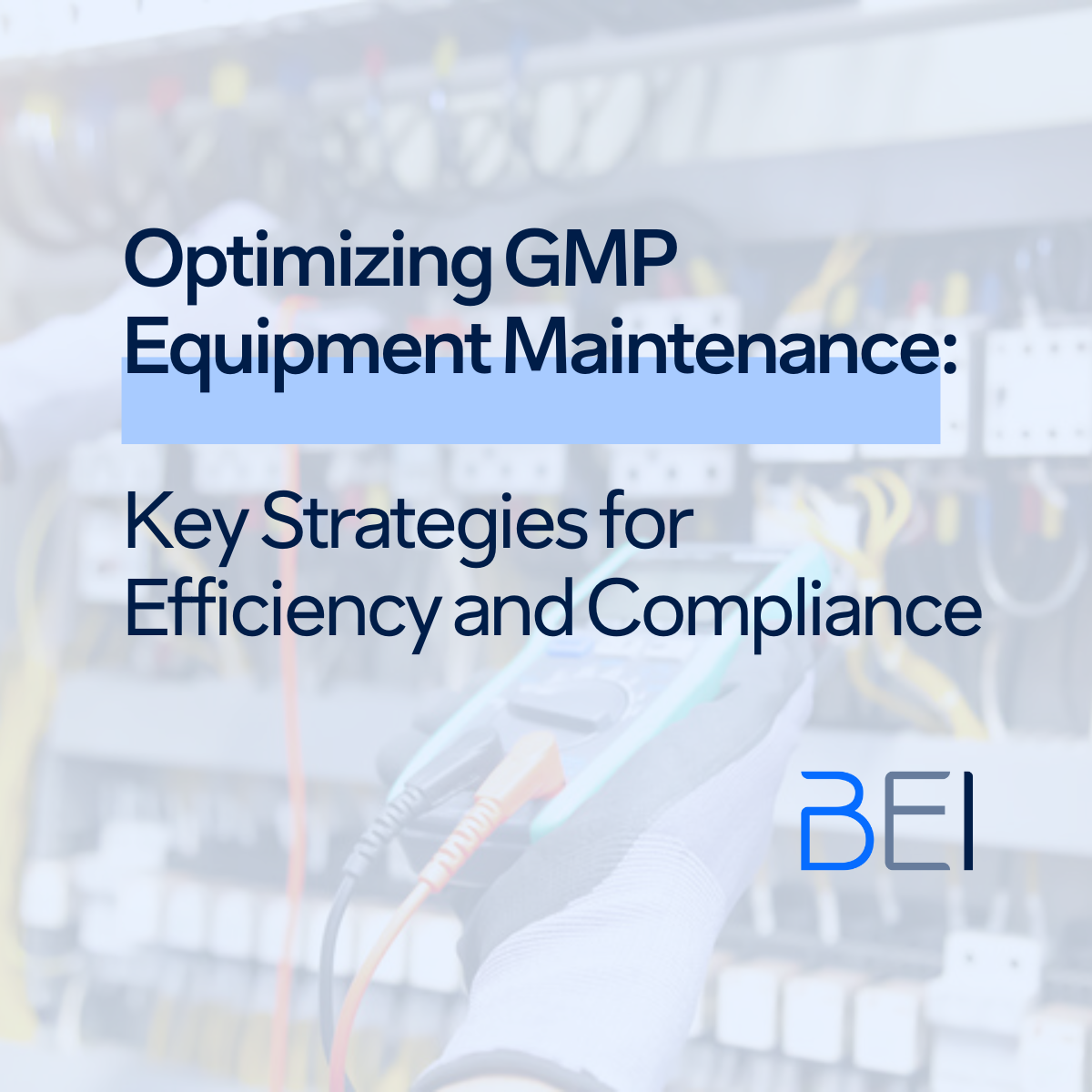
1. The Importance of Equipment Maintenance in GMP Environments
In GMP-regulated industries, every piece of equipment used in production or quality control must perform consistently, delivering precise results. Equipment failure or malfunction can lead to product defects, safety risks, and costly recalls. Moreover, regulatory bodies like the FDA (U.S. Food and Drug Administration) and EMA (European Medicines Agency) impose strict guidelines on equipment upkeep. A robust maintenance strategy is essential to:
2. Preventive vs. Predictive Maintenance: Choosing the Right Approach
There are two primary maintenance strategies that businesses can adopt—preventive and predictive.
For GMP environments, a combination of both methods is ideal. Preventive maintenance can be applied to critical equipment where failure is unacceptable, while predictive maintenance is useful for reducing downtime and enhancing overall efficiency.
3. Implementing Computerized Maintenance Management Systems (CMMS)
A Computerized Maintenance Management System (CMMS) is an invaluable tool for optimizing GMP equipment maintenance. CMMS software helps automate maintenance tasks, track equipment performance, and ensure regulatory compliance by:
For GMP operations, a CMMS system also ensures adherence to maintenance protocols by creating documentation trails that meet regulatory requirements. The system’s ability to track and log every action in real-time minimizes the risk of human error and oversight, ensuring compliance with GMP standards.
4. Training and Certification of Maintenance Personnel
One of the most crucial elements in maintaining GMP-compliant equipment is ensuring that maintenance personnel are properly trained and certified. Regular training programs should be conducted to familiarize staff with:
Additionally, a well-defined standard operating procedure (SOP) for maintenance activities should be in place. This SOP must be regularly reviewed and updated to reflect changes in equipment, regulations, and industry best practices.
5. Calibration and Validation: The Pillars of GMP Compliance
Equipment calibration and validation are essential parts of GMP compliance. Without proper calibration, instruments may give inaccurate results, leading to compromised product quality. A robust calibration schedule must be established, particularly for critical equipment involved in production and quality control.
Failure to maintain proper calibration and validation records can lead to non-compliance, regulatory penalties, or even product recalls.
6. Root Cause Analysis for Continuous Improvement
To optimize GMP equipment maintenance, it’s important to adopt a root cause analysis (RCA) approach to address recurring equipment failures. RCA helps identify the underlying causes of issues and implement corrective actions, ensuring that problems are permanently resolved. This proactive approach improves long-term equipment performance, reduces downtime, and enhances compliance by preventing repetitive failures.
Regular analysis of maintenance data, combined with periodic audits, allows businesses to refine their maintenance strategies and enhance operational efficiency.
7. Spare Parts Management
Effective spare parts management is often overlooked, but it plays a critical role in reducing downtime during maintenance activities. In a GMP environment, unavailability of key components can delay repairs and disrupt production. Businesses must ensure:
A CMMS can help track spare parts usage and alert the maintenance team when inventory is running low, preventing unexpected downtime due to part shortages.
Optimizing GMP equipment maintenance requires a balance of preventive and predictive strategies
Supported by modern tools like CMMS, proper training, and diligent calibration practices, companies can ensure that their equipment runs reliably, stays compliant with GMP standards, and contributes to efficient and high-quality production processes. Ultimately, this not only helps to meet regulatory requirements but also drives long-term cost savings and productivity gains.
By focusing on proactive maintenance, embracing technology, and ensuring continuous improvement, businesses can achieve optimal equipment performance and maintain their competitive edge in cGMP-regulated industries.
At Bothwell Engineering, we’re not just keeping pace—we’re setting the standard.
Let’s connect to bring the right talent to your project for success.